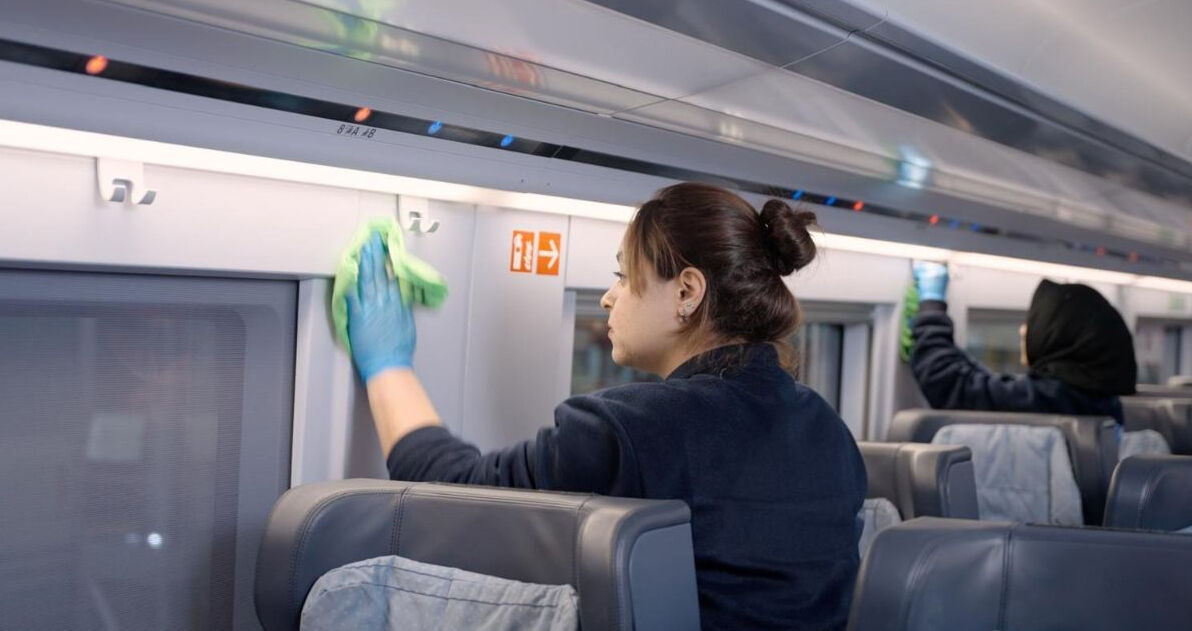How clean are the means of transport? We carry viruses in bulk, don't get sick on the road

Source: Türkiye Newspaper
- Update:The Eid al-Adha holiday is starting... Millions of people will go out of town or travel within the city they are in for the holiday. So how clean are the means of transportation? What kind of risks await us when we take public transportation?
ZİYNETİ KOCABIYIK - Drawing attention to the fact that increased passenger mobility and crowds, especially during the holiday period, increase the risk of infections, Infectious Diseases Specialist Prof. Dr. Hayat Kumbasar Karaosmanoğlu said that special precautions should be taken in public transportation to combat microbes that can cause diarrhea, upper respiratory tract infections, and even more severe diseases such as tuberculosis and measles.
MICROBE CAN GO 5-6 METERS AWAYProf. Dr. Karaosmanoğlu also drew attention to the fact that approximately 100 thousand disease-causing microorganisms can be spread into the environment with just one person sneezing, and provided the following information: “These droplets can travel up to 5-6 meters away. The agents of diseases such as tuberculosis and measles can be transmitted by air by hanging in the air. However, adenoviruses such as flu, Covid, and Sars, which we see more often, are found on surfaces and we mostly acquire them with our hands. Places such as handles, seat edges, door handles, and ticket printing areas are the riskiest places in terms of hygiene. We can spread these microorganisms even just by talking.”

Emphasizing that some of these microorganisms that can cause infections can only survive for a few hours, but some can remain on surfaces for days and be transmitted, Prof. Dr. Karaosmanoğlu said, “For example, microorganisms that we know as food poisoning agents can be transmitted through contact with surfaces. Some viruses, especially norovirus, can survive on surfaces for a long time, and even a much smaller amount of microorganisms can cause infection in the gastrointestinal system. For this reason, routine hygiene maintenance of public transportation vehicles is extremely important.”
HOLIDAY CLEANING ON TRAINSThe high-speed trains affiliated with the Ministry of Transport were cleaned within the scope of the “Protect Your Loved Ones – Hygiene Awareness in Public Spaces” project, which was implemented in cooperation with Hayat’s home care brand Bingo. 31 high-speed trains, which were cleaned from top to bottom, were made ready for holiday journeys.

A “Public Space and Home Hygiene Habits Survey” was conducted with 750 people aged 15 and over across Turkey. The survey showed that participants use public transportation within the city 3-4 times a week on average, and intercity transportation 1-2 times a month. The most commonly used means of public transportation is municipal buses with a rate of 81 percent, followed by metro with 65 percent, minibus and shared taxi with 63 percent, metrobus with 41 percent, train with 33 percent, and ferry with 25 percent. One in every two people participating in the survey state that hygiene is vital in public transportation. Despite this high awareness, 7 in every 10 people state that public transportation vehicles are not sufficiently hygienic.
HOW CAN WE PROTECT?- Hand Hygiene: Wash your hands thoroughly with soap and water before boarding and after getting off public transport. If soap and water are not available, use hand sanitizer. It is very important to clean your hands, especially after touching handles, seats or other surfaces.
- Don't Touch Your Face: Don't rub your mouth, nose or eyes with your hands. Your hands can touch surfaces that contain many germs and can transmit these germs to your body.
- Mask Use: Using a mask during crowded hours and in stuffy environments is an important protection against respiratory and droplet-borne diseases. When choosing a mask, choose a medical mask.
- Social Distancing: Stay away from people as much as possible, especially those who are coughing or sneezing.
- Keep Your Personal Items Clean: Clean your cell phone, keys and other personal items regularly…
Türkiye Gazetesi





